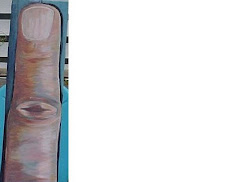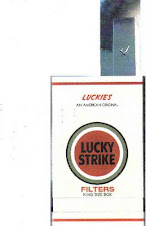 |
| Adrift on the Ship of Fools. |
Last night
PBS broadcast the New Year's celebration in Vienna that took place in the Golden Hall of
Vienna's
Wiener Musikverein, the home to the
Vienna Philharmonic orchestra. As the camera lovingly caressed the interior paintings, and the gorgeously gilded colonnades, the insipid music of a bygone world tinkled throughout the vast golden cavern, and I wondered if anyone in that hall shared my forebodings that 2013, like 1913, has dawned with the Nations of the world poised on that same knife's edge of self-annihilation.
All the ingredients that were in place prior to the Archduke's assassination, have, of course, been stoked to a height of almost hysterical proportions today, namely,
Militarism,
alliances,
imperialism, and
nationalism, all of which played major roles in the conflict a century ago. Only now we have the added ingredients of a world awash in armamentaria, a global supply of nuclear-armed missiles, a satellite-enabled strike force, psy-ops, drone-enabled diplomacy-by-assassination, and a spy-network, fully functioning and expanding beyond anything extant at the fall of the USSR more than a generation ago, although it was that particular entity that was the purported reason necessitating its globalized presence.
Yet it is a Mayan prediction regarding 12/21/2012, that had the globe apoplectic about a coming Armageddon, reminding one that although everyone has, so to speak, the whole of mankind's fate within oneself, it, by now, should be apparent, that it has all become too much and nothing works at all efficiently anymore, so,
we prefer to forget that "The fault, dear Brutus, is not in our stars, But in ourselves" ; the result being that the humanities and humanitarianism, liberals and liberalism, conservatives and conservatism have all practically become sheer swindles.
Slapping the name of 'reform' on everything now allows reactionary forces to rob entire nations of their economic protections as their savings become another resource to be plundered. As entire industries adopt the new paradigm of, instead of working to make their customers successful - because that will make them successful - Corporations now use their customers as a resource-base to stripmine: destroying them and then moving on to the next Target. This should make obvious the fact that simply letting things happen is ten times more dangerous than doing things! But instead it inexplicably reinforces the somnambulance of an anesthetized polity.
To whit, this somewhat stunning anecdotal report from
OilPrice.com might shed some light: A cargo train filled with biofuels crossed the border between the US and Canada 24 times; not once did it unload its cargo, yet it still earned millions of dollars... The companies “made several million dollars importing and exporting the fuel to exploit a loophole in a U.S. green energy program.” Each time the loaded train crossed the border the cargo earned its owner a certain amount of Renewable Identification Numbers (RINs), which were awarded by the US EPA to “promote and track production and importation of renewable fuels such as ethanol and biodiesel.” Stripmining.
An enormous Shell Oil offshore drilling rig ran aground on an island in the Gulf of Alaska on Monday night after it broke free from tow ships in rough seas, officials said. The rig, the Kulluk, was used for test drilling in the Arctic last summer, and only thanks to the heroic efforts of the U.S. Coast Guard, 17 crew members on board were rescued and brought to safety. Stripmining.
Because Shell reaps the Federal largesse bestowed on Corporations that explore in new territories, the crew on board, not Shell Oil, pay the cost of The Coast Guard rescue, without which they would have perished, working in order to make a fortune for people sitting comfortably in front of their warm hearths while men risked their lives to pay the taxes that fund Social Security, while those comfortably snug, disconcertingly smug, strive mightily to ensure workers will never receive its benefits. Promises are a thing of the past, and we must ever look forward.
Because rich people regard wealth as their personal attribute. But so do the intractably poor. Everyone is tacitly convinced of it. Only logic makes it obvious that perhaps money may confer some qualities to those who possess it, since money itself can never be a human quality. But closer inspection gives this the lie. Every human nose instantly and unfailingly smells the delicate breath of independence that goes with the habit of commanding, the habit of everywhere choosing the best for oneself, the whiff of slight misanthropy that goes with power, the scent rising from a large and secure income. The very appearance of such beings reveals that they are nourished and daily renewed by an exquisite selection of all the cosmic forces.
But Money circulates close to the surface like the nectar in flowers. Here is nothing of borrowed qualities, nothing second-hand; but destroy the bank-account and credit, and not only have the rich no money left, but on the day they realize they are penniless, they are as a withered flower. With the same immediacy with which everyone formerly observed the quality of his richness, everyone now observes the indescribable quality of nothingness, which smells like a smouldering heap of manure: insecure, unreliable, inefficient poverty. This is why wealth always maintains its argument that it is a personal, integral quality that cannot be analyzed without being destroyed.
Thus does the Financial Sphere reflect a skewed image of the workers relationship to capital: All the risks are borne by those who have no part in the decision-making, while all the rewards are carried off by those who risked nothing in the bargain. This reflects the state of affairs during that first World War, when the still-reigning monarchs of central Europe, the God-appointed Royalty, ruling by Divine Right, threw tens of thousands of their subjects at a time in front of the cannon and machine guns of 'the enemy', subjects who gladly gave their lives, and then those of their offspring, imagining their own paltry lives, as opposed to wealth, as being but a dream.
The people who possess it, however, exaggerate, on every occasion when they meet people who do not, the trouble that wealth causes them, insisting that labor's specialized skills, if regarded from a lofty enough point of view, being the offspring of ideas, knowledge, talent, and prudence, are qualities that can be bought because they exist in sufficient abundance, whereas the capacity to make use of them presupposes qualities that are possessed only by the few who happen to have been born and bred on the heights.
Thus firmly convinced that it is the man who bestows importance on property and not property on the man, they are convinced that money is not the important thing. It is simply what everyone else wants from them. But a few thousand or millions here or there, the presence or absence of which a rich man does not feel, can therefore make no difference in the value of a human being, by which they mean to say that they too would amount to as much without money, and they are always hurt if someone thinks otherwise.
But unfortunately, unlike a century ago, today members of what is now the electorate, having endured the political changes that transformed the economy into one dependent on stripmining, have now no money. But they still have the same projects, now unsupportable liabilities, and they have the talent, so feel themselves not in the slightest diminished in value as a result, and nothing seems to them more obvious than to force the rich, to whom money does not matter, to support their projects, as they are always for some good purpose or other, out of this superfluity.
But by demanding money for such socially desirable objects, we put it in a position that is antagonistic to its very nature; for the will of this nature is set on increase, just as animal nature is set on procreation. You can put money into bad investments, and then it perishes on the field of money's honor. You can buy a new car with it, although the old one's good as new; spend it at the most expensive, accompanied by your entourage, resorts of the internationally smart set, or buy outrageously over-priced art and race-horses, or spend, for a party with hundreds of guests, in a single evening, as much as would keep hundreds of families well-fed for a year. In this manner one throws money out the window like a sower casting seed abroad, hoping it comes in through the door again much increased. But to give it away for purposes and people that are of no use to it can be compared to foully murdering one's money, even if, like time, it isn't actually yours to kill.
And so money plays a role that is subject to rules and is, like a piece on a chessboard, only capable of moves that have been evolved over the course of time: it has been fixed into place like a nail that's been driven into the wall; now that it's in place, nobody notices it anymore. But when credit, which is the new form money has taken in order to free it from its enforced position, tries to serve the same function, or is rallied, via securities, into doing so, then the world is set adrift in a boat no one has any knowledge as to how to sail, and no longer has any place to which it can moor.
It is this perspective that forms the opinion that we sail in the same hazardous seas as those of a century ago, adrift in uncharted waters, but sure, because of new-fangled technology that dazzles the senses, that we can GPS ourselves into a safe harbor. But the future speeds heedlessly forward like a railroad engine that rolls out its track as it goes, where its taking us, nobody knows. And neither does anyone particularly care, as long as, when we've foundered on the unexpected reef that looms up out of unexplored waters, there is plenty of latitude to lay the blame on some other shoulders other than our own.


























































